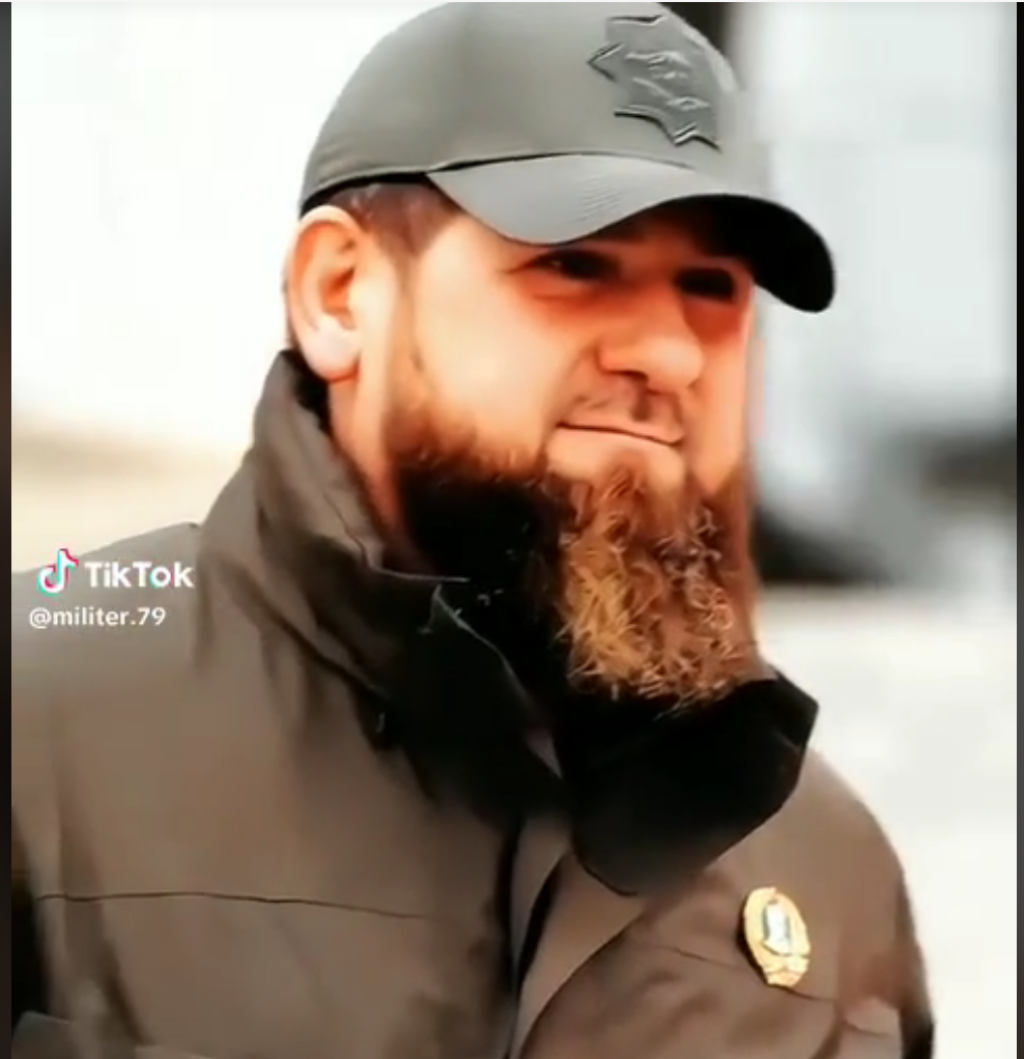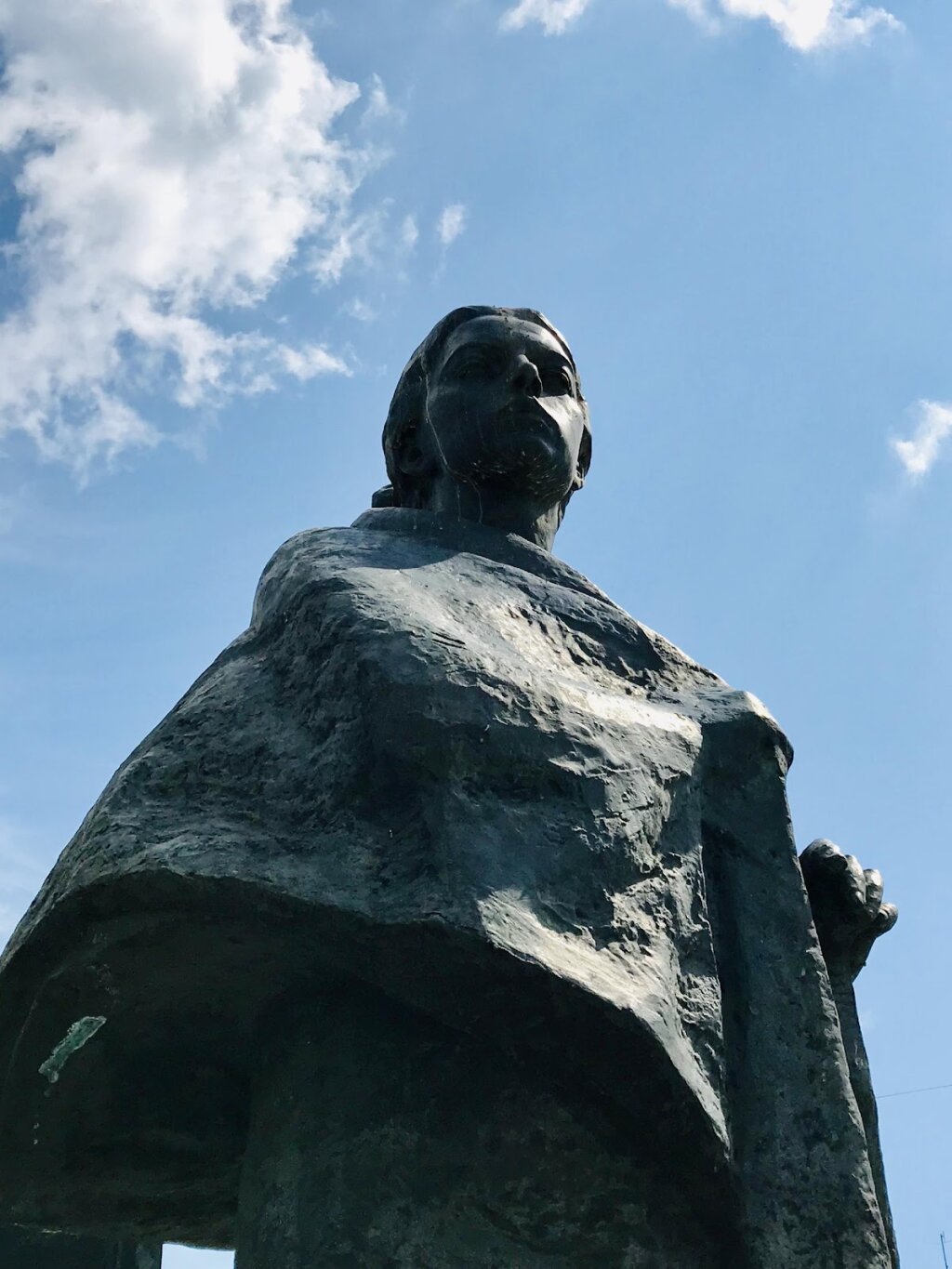The Jordan Center stands with all the people of Ukraine, Russia, and the rest of the world who oppose the Russian invasion of Ukraine. See our statement here.
A version of this post originally appeared as a policy memo on PONARS Eurasia.
Jean-François Ratelle is an affiliated researcher and professor with the Graduate School of Public and International Affairs at the University of Ottawa.
As protests from ordinary Chechens become more common in the context of the war in Ukraine and opposition forces gather in Ukraine to fight the Chechen regime, Ramzan Kadyrov, the Chechen dictator, is faced with a paradoxical situation On the one hand, the Chechen leader has drastically increased his influence across the decisional process in Russian federal politics. On the other hand, the casualties among Chechen forces in Ukraine and the growing cost of the war have put Kadyrov in a weakened position in his home region. His iron grip on Chechnya appears weaker today than it was when he took power after his father’s death in 2004. This situation is the result of a growth in political tensions among Moscow power ministries—in turn, a result of the failure to end the war in Ukraine and competition among various Russian political actors.
The war has offered Kadyrov the opportunity to raise his political profile outside of Chechnya, allowing him to move his ambitions toward Moscow. From his involvement in the military planning of the 2022 invasion of Ukraine to the recruitment of “volunteer” battalions in Chechnya and across Russia, the dictator has increased his involvement in political spheres traditionally reserved for federal ministries. Such involvement has provided Kadyrov with a platform to voice complaints against the Russian army and to advertise his own military forces.
Through the later months of 2022, Kadyrov was especially critical of Russia's Ministry of Defense (MoD) for their massive failures in Ukraine. He openly challenged decisions made by high-ranking officers with regard to prisoner exchanges and Russia's withdrawal from the Kharkiv region, even going so far as to assail Defense Minister Sergey Shoigu himself. This brazen behavior was not only not punished by the Presidential Administration, but actively rewarded with military honors. In the conflict between Kadyrov and the MoD, Putin has quietly supported the Chechen warlord over many established high-ranking officers.
The Chechen leader has also shaped a series of new alliances with powerful actors in Russian politics including Evgeny Prigozhin of the infamous Wagner group; Sergey Surovikin of the Ministry of Defense; Viktor Zolotov of the National Guard; and individual political and military leaders in the so-called Luhansk People’s Republic. These relationships may not survive long-term challenges resulting from the war in Ukraine. Just recently, in May 2023, tensions around the Russian failure to take Bakhmut erupted between Kadyrov and Prigozhin on social media, highlighting the thin line between cooperation and confrontation among warlords in Russia.
At the same time, the very existence of these alliances suggests that Kadyrov is outgrowing his current status as a powerful regional player and becoming a dominant force in federal politics beyond the immediate sphere of Putin’s personal protection. Kadyrov's self-positioning also points to the growing precarity of the Russian administration: it appears that the dictator is setting the scene for his own survival in case Putin's regime falls. Yet Kadyrov has still not abandoned his loyalty to Putin, who put him in power in the mid-2000s. As a regional leader, the he has always been loyal to Putin and his administration even if he regularly feuded with representatives of Russian power ministries who sought to bring presidential power to bear in Chechnya.
Kadyrov's abiding loyalty to the Russian president extends to cases where the vicissitudes of war could challenge the stability of his own administration. The wave of mobilization ordered by the Chechen leader and the federal government has driven the local population to protest the regime. Mothers of mobilized soldiers have openly questioned the Chechen leadership and their decision to support the war. On the whole, support for war remains difficult to for Kadyrov to mobilize within Chechnya. The demonization of Stepan Bandera, the Azov battalion, "Nazis" in Kyiv, and now "Western Satanists" have not produced the desired result. Other failed propaganda tactics include TikTok videos advertising Chechen battlefield successes, Kadyrov 's own speeches about the war, and attempts to frame the war as a religious duty for North Caucasians. Selling Chechens on a war whose sole purpose seems to be feeding Russian imperial ambition may be impossible given the region's history. A population that suffered continuous genocide at the hands of Russian forces over hundreds of years is unlikely to support Moscow's latest territorial bid.
Faced with growing discontent at home and a lack of support for his policies in Ukraine, Kadyrov has chosen to more openly embrace the Chechen nation's Ichkerian heritage. Rather than engaging in additional repressions against the local population, he has adopted a discourse focusing on self-determination and Chechen nationalism. In speeches given in the Chechen language, Kadyrov has started depicting himself as an “ardent Ichkerian.” In this framing, he is a hybrid political actor who fuses an unreserved loyalty to Vladimir Putin and his imperialist policy throughout the former Soviet Union with a will to defend Chechen nationalism and self-determination. This hybrid ideological position is unstable in the context of a clash between Russian and Chechen objectives. As support for real decolonization grows in the North Caucasus and elsewhere in Russia, Kadyrov may have to pick a side. And if the upcoming Ukrainian counter-offensive manages to retake major parts of Russian-occupied Ukrainian territory, Kadyrov may face this choice sooner than he expected.
Paradoxically, Kadyrov’s leveraging of the war in Ukraine to catapult himself to success in Russian federal politics is jeopardizing his authority in Chechnya, which he spent years building up through repressive rule. Although his loyalty to Putin remains strong, Kadyrov’s involvement in federal politics leave his traditional control on Chechnya much weaker than before—a situation that, in turn, may undermine his position in Moscow. After all, what made Kadyrov an asset to Putin was precisely his ability to keep an iron grip on Chechnya. If that grip begins to loosen, it is unclear whether federal leaders, including Putin himself, will continue to tolerate Kadyrov's verbal excesses, still less the extreme nepotism and corruption of his dictatorship. Kadyrov's downfall could open a Pandora's box, leading to full civil war in Chechnya— one that many Chechens have been expecting since the mid-2000s.



